US Reportedly Proposed To Israel Joint Military Planning On Iran

The Biden administration has proposed to Israel to start “Joint military planning” regarding Iran, Walla news website reported Wednesday.

The Biden administration has proposed to Israel to start “Joint military planning” regarding Iran, Walla news website reported Wednesday.
Quoting three US and Israeli officials, the website said that a few weeks ago the United States proposed the joint effort, but it is not clear whether it pertains only to exchange of information and planning or it also means joint military action.
Israel has not rejected the offer but views the proposal with suspicion as it could be designed to “tie Israel’s hands” in any contingency to attack Iran, in particular its nuclear installations. Israel has reportedly asked Washington for clarifications.
Israeli leaders have repeatedly said that they will not tolerate a nuclear Iran and would take military action to stop it.
The report quoted American officials as saying that there was no hidden agenda in the proposal and Washington simply wanted to give reassurances to Israel regarding the US commitment to security relations.
The Biden administration has also said in recent months that all options are on the table and conducted large military drills with the Israeli Defense Forces in January.
Walla quoted senior US officials as saying that the proposal was made during visits to Israel by the Chief of the Joint Staff, General Mark Milley and US defense secretary Lloyd Austin in early March, as well as by Gen. Eric Korilla, commander of CENTCOM.
The American sources who spoke to Walla said “joint military planning” means that each side will share its plans for various scenarios.

The Islamic Republic’s Revolutionary Guards (IRGC) have made a criminal Iran’s leading drug lord, Iran International can reveal.
Information obtained by Iran International shows how Naji Sharifi-Zindashti and his cartel now dominate the narcotics trade thanks to the support of the government militia.
His extraordinary rise comes despite his having killed a prison guard in Iran and fleeing abroad, only to return with impunity.
Investigative reporter Mojtaba Pourmohsen has uncovered how a recent rise in the number of executions of convicts sentenced to death on drug-related charges is the result of infighting between rival drug cartels with connections within the ranks of the IRGC.
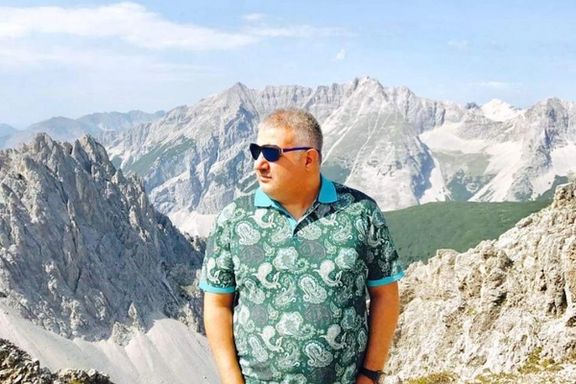
Emerging triumphant from this criminal war, Sharifi-Zindashti and his accomplices – dubbed “The Friends’ Club” – have used the IRGC’s vast reach and control over transit routes and logistics to gain the upper hand in Iran's drug market, according to sources.
The Club comprises senior IRGC officials and high-ranking members of Iran’s Supreme National Security Council as well as managers from Tehran Municipality and members of parliament.
Sharifi-Zindashti not only pays bribes but also supplies opium and heroin for the personal consumption of many of these senior officials.
According to the sources, Sharifi-Zindashti’s gangs traffic more than 20 percent of drugs distributed across Iran and about 35 percent of the drugs pushed in the capital Tehran.
The narcotics that are confiscated and destroyed as part of the Islamic Republic’s regular war on drugs mostly belong to rival gangs.
Iranian police arrested Zindashti in 1996 for a drug deal. Sentenced to death on drug-related charges, Zindashti along with an accomplice killed a guard during transfer to the court to testify in another case. Zindashti fled to Turkey, where he established a drug and human trafficking cartel.
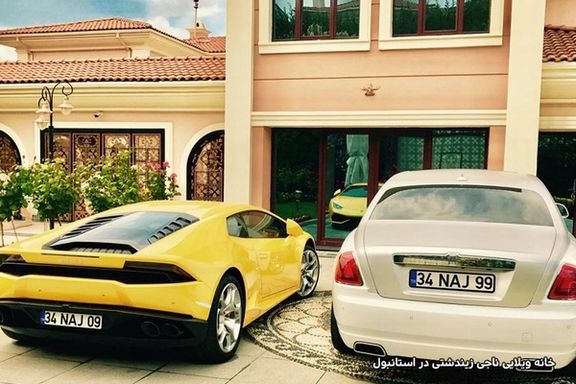
He has since been cooperating with the Islamic Republic’s intelligence agencies in numerous cases, including the abduction in 2020 of Swedish-Iranian Habib Chaab (Asyud), a political activist and former leader of the Arab Struggle Movement for the Liberation of Ahwaz (ASMLA) who was executed earlier in the month.
In December 2020, the Turkish Police arrested 13 members of the Zindashti Cartel on charges of collaboration with Iranian intelligence. According to Turkey's official government news agency, Anatoli, the Iranian Intelligence Ministry had been using the gang to assassinate or abduct Iranian dissidents in Turkey at least since 2015.
Zindashti is also suspected to have been behind the assassination of Iranian dissident Masoud Molavi Vardanjani in Istanbul in November 2019. Molavi-Vardanjani, a former Iranian intelligence operative and a civil engineer by education, fled to Turkey in 2018 and launched a Telegram channel, called Black Box, focused on corruption allegations against Iran’s extraterritorial Qods Force, top officials in the office of Supreme Leader Ali Khamenei, judges and other senior figures.
In 2018 some of the members of the group and Zindashti himself were arrested in Turkey on suspicion of assassinating Saeed Karimian, the founder and head of Gem TV, and other killings related to drug trafficking. They were eventually freed, reportedly as a result of lobbying, bribery and lack of adequate evidence.
After his release Zindashti returned to Iran and despite his convictions for drug trafficking and the killing of a prison guard in the past, Zindashti leads a free life in Iran. In December 2022, he was honored during a ceremony by Iran’s Education Ministry as one of the members of the Charity for School Constructions. He is a benefactor and CEO of Zindashti Star Charitable Institute, constructing shopping malls and schools, yet also a drug lord with links to regime insiders.

A $10 billion project has been agreed to develop a vast natural gas field shared between Qatar and Iran.
The deal was signed by QatarEnergy with French-owned Technip Energies for the scheme in the world’s largest natural gas field.
The Iranian part, known as South Pars, supplies 70% of Iran's gas.
In a statement on Tuesday, QatarEnergy stated that the project will include two giant liquefied natural gas (LNG) production lines, with an annual capacity of 16 million tons.
The company said the extra LNG capacity would increase the country's total production by 60 percent reaching 126 million tons by 2027.
The Russian war on Ukraine and sanctions imposed by Europe and the US on Moscow have increased global demand for Qatar's gas.
The rapid development of the Qatari part comes as the completion of the remaining phases of the Iranian part has been delayed for years.
Just to maintain current production, Iran needs to invest up to $50 billion in its gas fields, especially in the Persian Gulf offshore South Pars reserves shared with Qatar.
In Iran’s gas fields, as any other in the world, underground pressure that pushes the gas out declines over time, so necessitating modern technology to maintain production level. However, such equipment is only provided by a handful of Western energy giants and the sanctions against Iran are a barrier for them to invest.
Although Iran has the second-largest natural gas reserves in the world, holding more than 17 percent of global fields, the government has issued warnings of power cuts in winter, as power plants that lacked sufficient gas supplies were forced to switch to less efficient liquid fuels.

The UK government is split over whether to proscribe Iran’s Revolutionary Guard (IRGC) as a terror group, according to press reports.
Home Secretary Suella Braverman and Security Minister Tom Tugendhat are both said to back the move and bring Britain in line with policy in the US.
But Foreign Secretary James Cleverly is believed to be holding out against the change.
Critics say he is being badly advised by civil servants, claiming he is “too closely led by officials”.
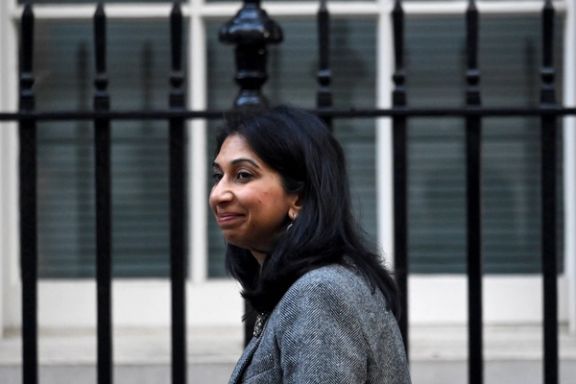
The reports come after British-Iranian campaigner Vahid Beheshti ended his 73-day hunger strike outside the Foreign Office building in London last week. Now recovering in hospital, Beheshti has been calling for the British government to ban the IRGC. He has the support of more than a hundred members of the UK parliament.
The IRGC is designated as a “foreign terrorist organization” by the US, and has a long history of fomenting assassinations and attacks on civilians across the region and around the world. Earlier this year British counter-terrorism officers revealed that they had foiled 15 plots by Iran to either kidnap or kill British or UK-based individuals it considers “enemies of the regime”.
However, the Foreign Office is said to believe in valuing intelligence and maintaining dialogue over a “gesture”, as one source speaking to The Sun newspaper described the terror designation for the IRGC.
There is also said to be concern over how Tehran might retaliate, whether by targeting UK citizens in Iran – possibly adding to the number of foreigners who have been taken hostage – or by acting on British soil.
A Foreign Office source The Sun: “Nothing is ruled in or out. And anonymous personal comments about the Foreign Secretary will not distract from the ongoing business of the Government.”
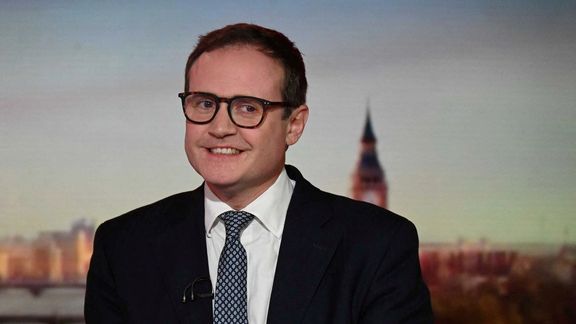
However, Security Minister Tugendhat’s uncompromising approach over Iran was echoed by his counterpart in the Labour Party opposition, who are leading the governing Conservative Party in the polls and widely predicted to take over in government after a scheduled general election next year.
Speaking at a security conference in London, Shadow Security Minister Holly Lynch added her voice to calls for a ban on the IRGC.
She said a ban “wouldn’t simply be a symbolic measure – which would be powerful in its own right, but that is not what proscription powers should be used for.”
The shadow minister added: “Proscription would grant law enforcement the powers to take action against those supporting the IRGC and allow for a more effective dismantling of the support base necessary to facilitate such unacceptable conduct here within our borders.”
She voiced her outrage over the revelation of the 15 plots by Iran against targets in Britain, many of them in the media.
Ms Lynch said: “We have to ask ourselves what message does that send to the rest of the world, when journalists are not safe here in the UK.
“When we have authoritarian hostile states engaged in exporting tyranny into our country, pursuing those they perceive as enemies, and the heads of our security services are calling it out for the terrorism that it is, it calls for a significant and robust response from the UK.”
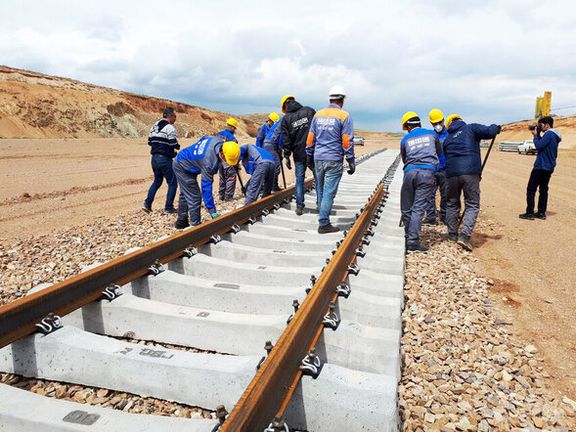
Russia and Iran have agreed a deal to finance and build a railway providing a strategically significant new link in the region.
The Rasht-Astara link is seen as an important link in the corridor that will connect India, Iran, Russia, Azerbaijan, and other countries by rail and by sea.
The 162 km railway along the Caspian Sea coast will go from Russian ports on the Baltic Sea to Iranian ports on the Indian Ocean and Gulf of Aden.
Wednesday’s deal was signed by Russian President Vladimir Putin and his Iranian counterpart Ebrhaim Raisi in a meeting on video link.
Putin said: "The unique North-South transport artery, of which the Rasht-Astara railway will become a part, will help to significantly diversify global traffic flows."
He claimed the “successful cooperation within the framework of this ambitious project is evidence of the high standards and the fruitful and mutually beneficial nature of Russia-Iran relations.”
Both Russia and Iran are giving priority attention to the strengthening of trade, economic and other bilateral ties, which are based on the principles of neighborliness, mutual respect and consideration for each other’s interests, said Putin.
Raisi said: "Without a doubt, this agreement is an important and strategic step in the direction of cooperation between Tehran and Moscow."
It comes as Western sanctions bite hard against Russia following its invasion of Ukraine and against Iran over its nuclear programme. The two ostracised nations are increasingly cooperating, with Iran providing drones and other weapons for Russia as its fights in Ukraine.
The North-South route was originally signed by Russia, Iran, and India in the early 2000s, and since then other countries have ratified it, including Azerbaijan, Belarus, Bulgaria, India, Iran, Kazakhstan, Kyrgyzstan, Oman, Russia, Tajikistan, Turkey, and Ukraine.
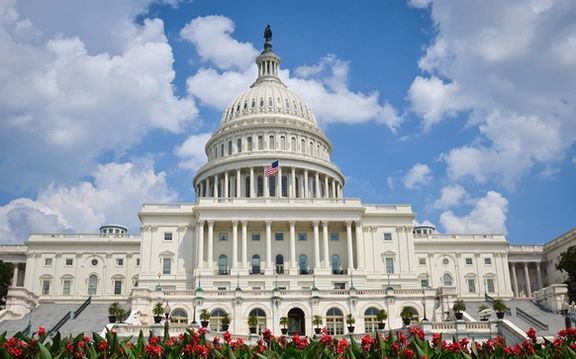
United States senators expressed disappointment with an administration briefing on Iran on Tuesday in comments to reporters after the meeting.
“Based on what I heard during the last 40 minutes they really don't have much to say on the topic, and I didn't think it was particularly useful briefing. I don't know if they really have a coherent strategy if there is one I didn't I didn't hear,” Sen. Josh Hawley a staunch Republican critic of the Biden administration said in response to our correspondent Arash Alaei.
US senators on Tuesday heard a confidential briefing on Iran by Biden administration officials eight months after long nuclear talks with Tehran reached an impasse last September and Iran continued its uranium enrichment, building up its stockpile of fissile material.

Sen. Hawley added that in his view there was no need to classify the briefing as ‘confidential’ and the senators were not given any new information. “We didn't learn anything new or remotely classified.”
Senator Jim Risch (R-Idaho) released a brief statement saying that after six months since President Joe Biden declared the 2015 nuclear accord, the JCPOA “dead” the US “is no closer to a more comprehensive Iran policy. Strategic ambiguity on Iran policy only serves to embolden the regime and push our partners closer to China.”
President Biden was heard saying in November 2020 that the JCPOA is dead, but the administration has continued to emphasize its commitment to a diplomatic solution.
After nuclear talks with Iran hit a dead-end last year, senior US officials have repeatedly said that they are no longer focused on the JCPOA.
Sen. Risch went on to say that “As Iran continues to illegally seize vessels, target Americans in the region, and support its terror proxies and the Russian invasion of Ukraine, Americans deserve a policy that is more than a failed nuclear negotiation.”
Republican senator from Lousiana, John Kennedy, told reporters that he believes China, Russia and the Islamic Republic are coordinating efforts to dominate the Indo-Pacific, Central and Eastern Europe and the Middle East respectively.
“That is not a world that is safe for the US,” he said, and added, “We are in a bar fight with Putin, with Xi, with the Ayatollah,” and the Biden administration “believes in peace, but they believe in peace for weakness.”
Senator Kennedy also echoed Sen. Risch’s comment about the administration not having an effective policy. Sanctions have been imposed on Iran and Russia, but “when you ask the administration, what is your plan given that the sanctions have not stopped them, or what is your plan in addition to the sanctions, you are met with either silence or BS or both.”
The senator was also clear about what he expects from a possible nuclear deal with the Islamic Republic. “The deal I want is for Iran to give up all of its fissile materials, all of it, and give up its capability of making a nuclear bomb and to allow international inspectors to check them every other day. Otherwise, they probably won't have any deal.”
Senator Rick Scott (Rep-Fl) in response to questions expressed deep concern about Iran’s role in the region and in helping Russia’s invasion of Ukraine.
“I don't think you can say there's anything good happening out of Iran.”